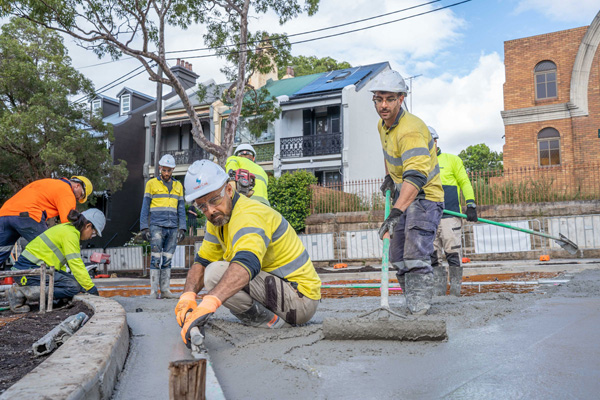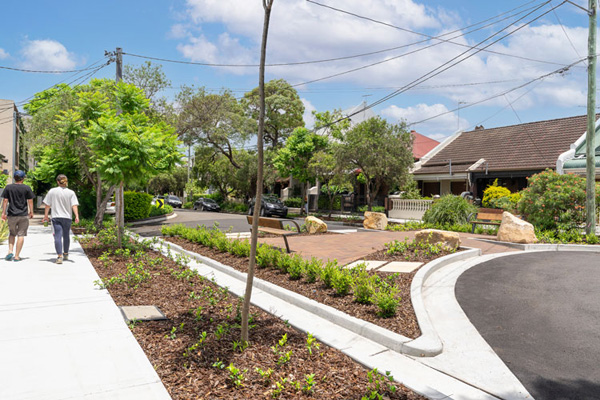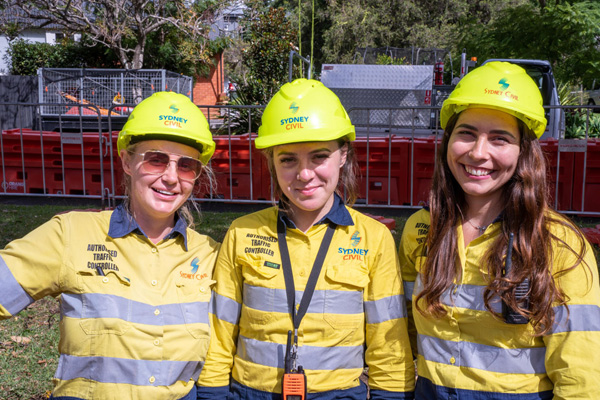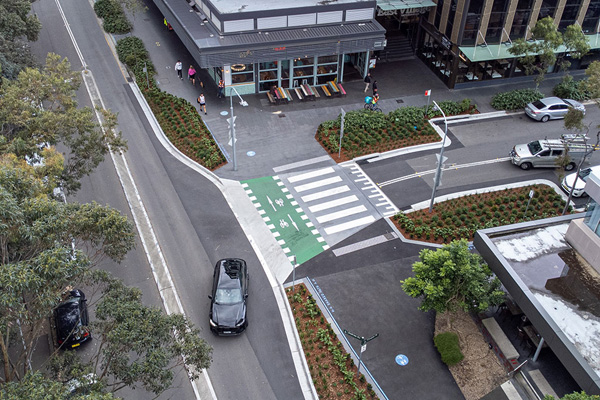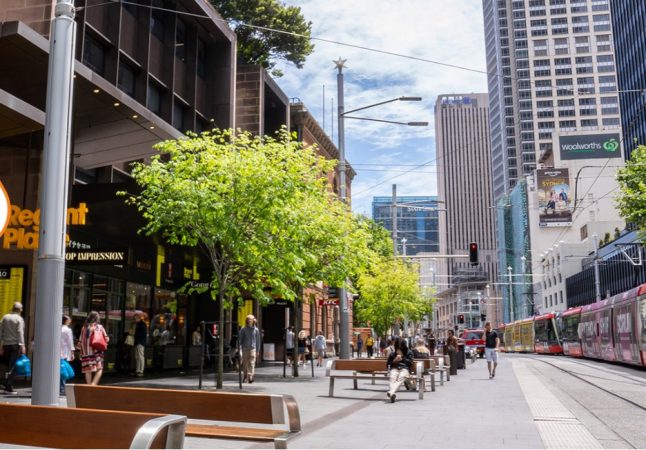Embedding sustainability at the core
In 2022, we began our whole-of-business transformation to embed sustainability within our operations. At that time, the property and construction sector was responsible for 18% of Australia’s total greenhouse gas emissions.
Driven by our commitment to positive change and longevity for our business and the planet, we tuned into the needs of clients who valued project delivery that benefited communities and minimised environmental impacts.
Our sustainability targets include:
- Achieving 100% Green Power for operations by 2025
- Reducing Scope 1 and 2 emissions by 10% by 2024
- Identifying three new opportunities to recover waste by 2026
- Reducing water use from Sydney Water by 20% in 2024
- Reducing embodied emissions for materials by 10% by 2024
Strategic approach and implementation
Our sustainability journey began with in-depth interviews with key clients. These discussions revealed a major priority: that suppliers positively contribute to reaching institutional targets.
We conducted a sustainability risk and opportunity workshop to assess real-world conditions and review opportunities.
These activities led to the development of our comprehensive Sustainability Management Plan, focusing on continuous improvement and strong sustainability outcomes.
Aligned with UN Sustainable Development Goals, as is best practice in our sector, here are some examples of our focus:
- Energy and carbon management
In 2023, we introduced electric equipment across projects, which had a positive impact on operational efficiency, environmental sustainability, and worker safety.
The transition to electric tools required a comprehensive change management process, including training and familiarisation for workers both in the depot and on-site.
- Water conservation
We’ve reduced the use of water in projects and operations and avoided the use of potable water where feasible. Technologies like Slurrytub, a portable filtering system for wet trade slurry disposal, and Dry Vac, a site cleaning system that eliminates the need for potable water, have significantly reduced water demand.
- Sustainable materials and embodied energy
We’ve modelled our total materials quantities and corresponding Scope 3 embodied greenhouse gas emissions. This assessment helped us identify and implement material impact reduction strategies to minimise the embodied GHG emissions and lifecycle impacts of the materials used in our operations.
- Waste management and circular economy
We’re committed to implementing circular economy principles in our work practices, procurement approach, and product end-of-life considerations. We closely monitor waste generation and explore opportunities for reduction, reuse, and recycling.
- Sustainable supply chain management
Our approach to procurement follows the ISO 20400 Sustainable Procurement Guidelines. We make purchasing decisions that consider environmental and social impacts, working with suppliers to improve procurement outcomes and manage modern slavery risks.
- Social responsibility
We’re committed to being a responsible corporate citizen, contributing positively to the local community and economy.
We support local procurement and employment, apprenticeships, and training, and partner with community groups, social enterprises, and First Nations organisations. If you keep an eye on our LinkedIn page, you’ll see some of them in action.
Worth doing, and worth doing well
Our sustainability initiatives have delivered tangible benefits, revitalising localities such as Sydney’s iconic George Street and Macleay Street.
We’ve achieved a 21% reduction in emissions and a 17% reduction in water demand compared to a business-as-usual approach. These achievements are independently reviewed annually to ensure compliance with AS/NZS ISO14001 standards.
Our commitment to sustainability drives financial efficiencies. Using durable materials and quality sustainable design reduces construction and maintenance costs, while a sustainable supply chain minimises supply disruptions.
Strong relationships have been key to our sustainability success. We collaborate closely with partners and engage with clients and staff to ensure alignment with sustainability targets.

We’re proud to announce that our efforts have been recognised, and we’re a finalist in the SME Leadership category for the 2024 Banksia Foundation Sustainability Awards. This recognition underscores our commitment to sustainability and our dedication to creating a positive impact on the community and the environment.
Want to find out more about our work? Follow us on LinkedIn, or get in touch.

